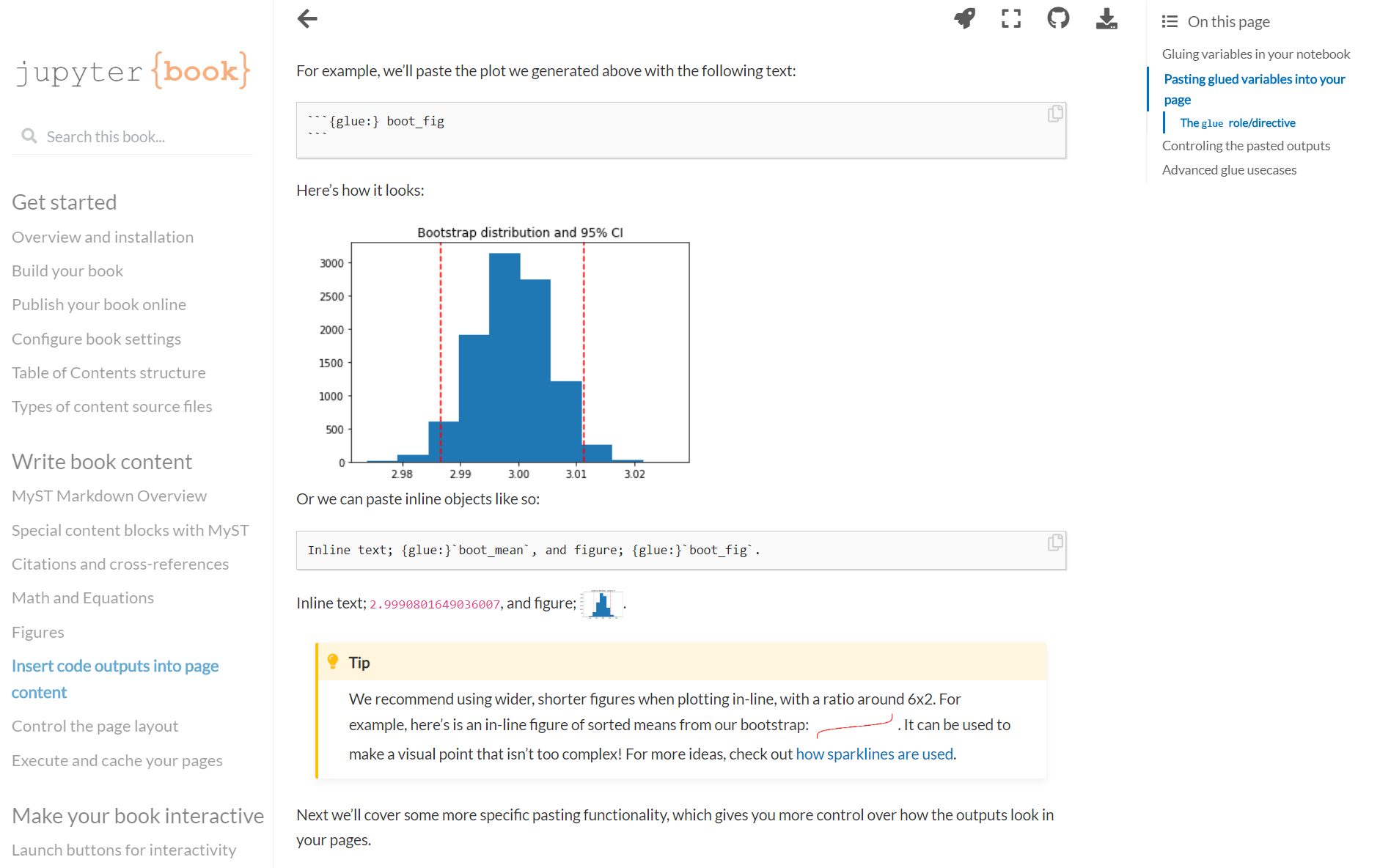Blog posts
All Posts
Executable Books Update (October 2022)
- 16 November 2022
This blog post provides an annual update for the Executable Books community. This post is an adaptation of an interim report provided to the Alfred P. Sloan Foundation. It shares how the project has been progressing relative to the initial grant success metrics, and concludes with a few comments about the future of Executable Books and our vision for the next 12 months.
Jupyter Book and MyST at AGU 2021
- 18 December 2021
The AGU 2021 conference just wrapped up, and Jupyter Book made a few appearances at the conference this year. Below are a few links to videos and Google Slides for each session.
Migrate your old Table of Contents to the new TOC structure
- 17 June 2021
In Jupyter Book v0.11, we introduced a new Table of Contents structure. The new structure is a bit more rigid and explicit, which should allow for a cleaner mapping of TOC structures onto book structures. It also introduces the concept of TOC formats, which allows you to specify different kinds of documents in the TOC (to start with, Books and Articles).
This is a short guide to explain the differences between the old and new Table of Contents structures, to help you update them.
🚀 RELEASE: Jupyter Book v0.11.1
- 05 June 2021
This is an experimental post to try solving two problems with one blog post. We often send out a flurry of tweets to talk about a new release in the Executable Books stack. We’d also like to blog about releases more often so it’s easier to track major updates. This post is an attempt at crafting a blog post entirely made out of tweets!
We’re pleased to announce a new version of Jupyter Book has just been released! You can check out the CHANGELOG here: https://jupyterbook.org/reference/_changelog.html#v0-11-0

Announcing the new Jupyter Book
- 07 August 2020
Note: this announcement is cross-posted between the Jupyter Blog and the Executable Book Project updates blog
Jupyter Book is an open source project for building beautiful, publication-quality books, websites, and documents from source material that contains computational content. With this post, we’re happy to announce that Jupyter Book has been re-written from the ground up, making it easier to install, faster to use, and able to create more complex publishing content in your books. It is now supported by the Executable Book Project, an open community that builds open source tools for interactive and executable documents in the Jupyter ecosystem and beyond.

Hello world
- 25 February 2020
Over the last several years, Jupyter Notebooks have become a staple in the data scientist’s toolkit. As both an interface for interactive computation and a document standard for structuring blocks of computational and narrative content, notebooks are ubiquitous, flexible, and powerful.